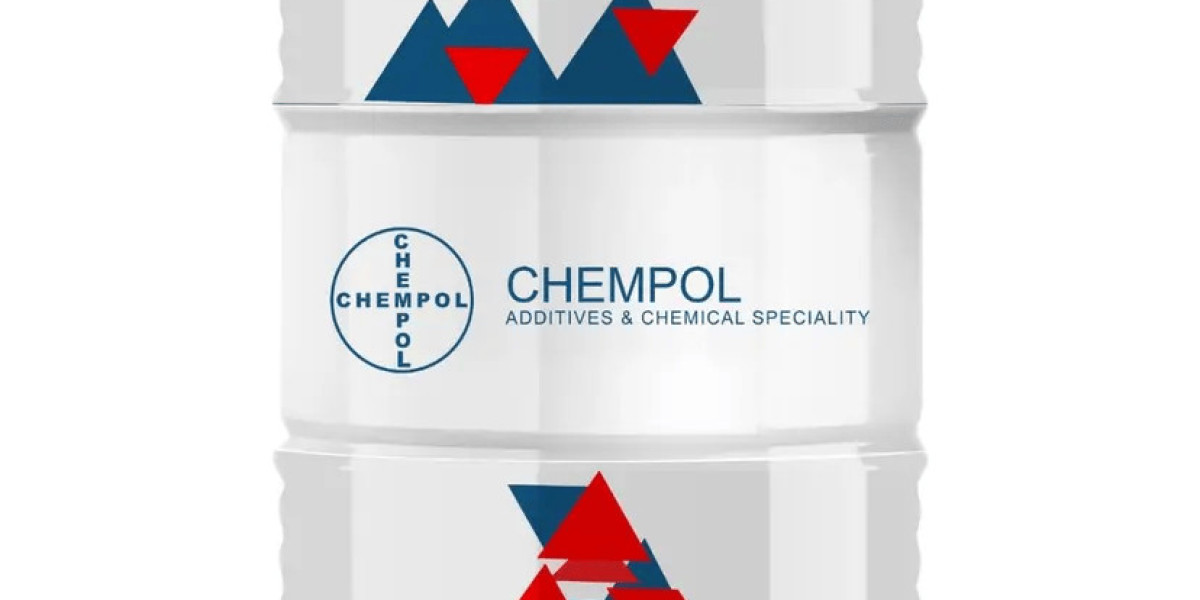Engines are what make vehicles and machines alive, but they still operate under harsh conditions, such as high temperatures, heavy loads, and non‑stop friction. Wear, energy loss, and breakdowns may gradually result from the ongoing stress. Using synthetic oils and additives is, without a doubt, one of the best ways to keep engines running well and extend their lifespan. These liquid heroes have revolutionised engine operation, offering protection that is not only cleaner and smoother but also longer-lasting.
Nowadays, engine oil and lubricant additives enable synthetic oils to deliver high performance, low wear, and long engine life. In this blog, we will discuss how this is possible.
Understanding Synthetic Oils
What makes synthetic oils different from regular mineral oils? Just for comparison, mineral oils are derived directly from crude oil, whereas synthetic oils are composed of chemicals and refined to have a pure, consistent structure. Thus, they are more stable, cleaner, and tougher in extreme conditions.
In producing high-quality synthetic oil, every single molecule is considered, and the work is done in a laboratory. Such a design gives scientists full control over the behaviour of the oil—its ability to flow at low temperatures, resist heating, and protect metal surfaces. That is why the final product performs better than the natural one in nearly every aspect.
The majority of synthetic oils are formulated with special lubricant additives as well. These additives confer the oil with some extra properties, such as keeping the engine clean, preventing corrosion, lubricating, and resisting oxidation.
How Synthetic Oils Reduce Friction
Friction is the major one among the engine's enemies in the circle of problems. To explain the basic concept of the engine's friction, every moving part—pistons, bearings, and valves—rubs against another surface. This rubbing generates heat and gradually wears down parts. Synthetic oils are much better at solving this problem than regular ones. The uniformity and smoothness of their molecules enable them to be easily inserted between metal parts. In this way, a strong, even film that cuts friction is formed.
On top of that, synthetic oil additives take this protection to a higher level. They use anti-wear and friction-modifier chemicals that can also eliminate direct metal-to-metal contact. Once these additives create a shield on the surfaces, not only does it facilitate the freedom of movement of parts, but it also ensures protection against pressure.
The reduction in friction, followed by a drop in the energy the engine will use, is good for the engine. Therefore, it can run at its highest efficiency while producing the same amount of power, using less fuel. Low friction also means less heat, which helps an engine dissipate heat and prevents it from overheating.
Keeping Engines Clean and Sludge-Free
Engines produce carbon, soot, and other by-products while burning fuel. Over time, these can turn into thick sludge that sticks to engine parts. Sludge blocks oil flow and reduces lubrication, leading to serious damage.
Synthetic oils resist sludge buildup better than mineral oils. They contain strong cleaning agents and engine oil additives that dissolve dirt and prevent deposits from forming. These additives keep contaminants suspended in the oil, where the oil filter can trap them.
This cleaning action keeps the engine's interior spotless. A clean engine runs more smoothly, wastes less fuel, and lasts longer. Regular use of synthetic oils ensures that even small oil passages remain open and that all parts get proper lubrication. Cleaner engines also produce fewer emissions, which is important for both performance and the environment.
Temperature Control and Stability
Engines undergo wide temperature swings, from cold at startup to scorching heat during operation. Regular oils often thicken when it’s cold and break down when it’s hot. But synthetic oils handle both extremes with ease. In cold weather, synthetic oils flow quickly. They don’t become thick or sticky, so they reach all parts of the engine within seconds of starting. This reduces dry starts, which are one of the main causes of wear.
In hot weather or under heavy loads, synthetic oils stay stable. They don’t thin out or evaporate like regular oils do. Their strong chemical bonds resist breakdown at high temperatures. Lubricant additives also play a big role here. They include antioxidants that prevent the oil from reacting with air and forming harmful acids. This helps the oil maintain its strength and protect the engine for much longer. Because synthetic oils perform well in both hot and cold conditions, they are ideal for all climates and driving styles.
Protection Against Oxidation and Corrosion
Engines are basically fire starters, creating a harsh environment of heat and oxygen for themselves to work in. Oxygen eventually also interacts with oil by the same process of forming acids and deposits. After a while, the oxidation process can result in one of those scary engine situations—damaged metal parts and ruined oil quality. These damages in synthetic oils are much less likely because they are highly purified chemically and thus lack the volatile compounds present in mineral oils.
Besides that, lubricant additives include antioxidants, which help neutralise those reactions. They eliminate acid buildup and prevent metal parts from being eaten by corrosion. This, in turn, results in cleaner oil, better protection, and longer engine life. Corrosion control, however, is of great concern, especially for vehicles that are not driven daily. Moisture can develop inside an engine when it is left unused for a while. Additives in synthetic oil keep metal parts safe from rust during periods of inactivity, so the engine is always good to go when it has to be used.
Longer Oil Change Intervals
One of the biggest advantages of synthetic oils is that they last longer. Regular oils break down after a few thousand miles and need to be replaced often. Synthetic oils, with their strong molecular structure and advanced additives, can last much longer before they lose effectiveness.
Because synthetic oils resist heat, oxidation, and sludge, they keep their properties over time. Drivers can often go thousands of extra miles between oil changes. This saves time and money and reduces waste oil disposal. Engine oil additives also help maintain oil quality over these longer intervals by fighting wear, rust, and foam formation. Even as the oil ages, it continues to protect the engine. Fewer oil changes also mean fewer containers and less oil waste, which helps the environment.
Quieter and Smoother Performance
Usually, synthetic oil helps a vehicle's engine operate quietly and smoothly. This is because the single oil film reduces contact between the metals, thereby reducing vibration. When oil circulation is even and stable, the machinery parts, such as gears, valves, and bearings, work together. Hence, there is less noise and vibration, and a more comfortable ride.
The synthetic oils also have friction-modifier additives, which help this effect. These additives decrease micro-friction at the molecular level, further smoothing motion and reducing very slight engine load. Besides, this is quite heating and annoying for the driver, but fortunately, this technology benefits the engine, extending its lifespan even further.
Synthetic Oils and Modern Engine Design
It is well known that new engines are more compact, faster, and more powerful than ever before. It means they work at higher temperatures and have smaller clearances, which, in turn, require more accurate lubrication. It is the synthetic oil they have in mind.
The relatively constant molecular structure allows it to penetrate the smallest spaces and withstand the highest pressures modern engines can generate. Besides, they contain various additives that help keep the oil performing well even under strain, thereby eliminating metal scuffing and deposit buildup.
In fact, turbocharged and high-performance engines take advantage of synthetic oils to the greatest extent possible because they are subjected to extremely high temperatures and pressure. In these circumstances, the use of regular oils leads to oil breakdown and, consequently, damage, as they are unable to withstand these conditions. On the other hand, synthetic oils retain their strength and stability, ensuring continuous protection.
Final Thoughts
One might say that today's engines require more than a simple oil-they require a "smart" lubrication. In fact, synthetic oils together with synthetic oil additives, engine oil additives and lubricant additives, provide this "smartness". They reduce friction, keep engines cleaner, resist heat, and prevent wear much better than conventional oils.
By switching to synthetic oil, both drivers and companies can reap benefits such as smoother vehicle performance, longer oil life, improved fuel economy, and enhanced protection against damage. It's a move that not only enhances engine health but also promotes environmental friendliness by reducing waste and emissions. Synthetic oil is the way forward in engine care. It is the one that protects the most, lasts the longest, and also optimises every engine's performance - anytime, anywhere.








